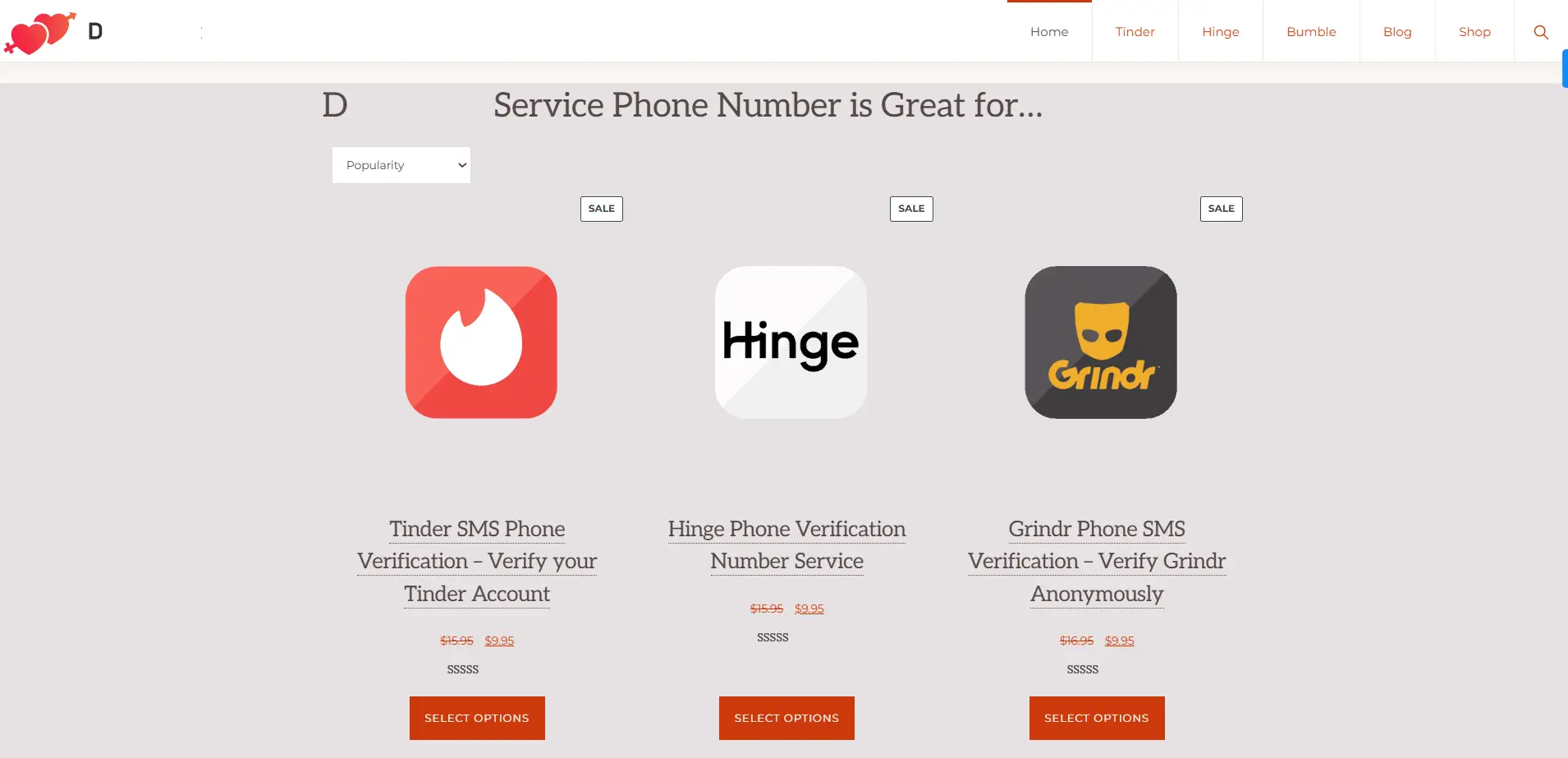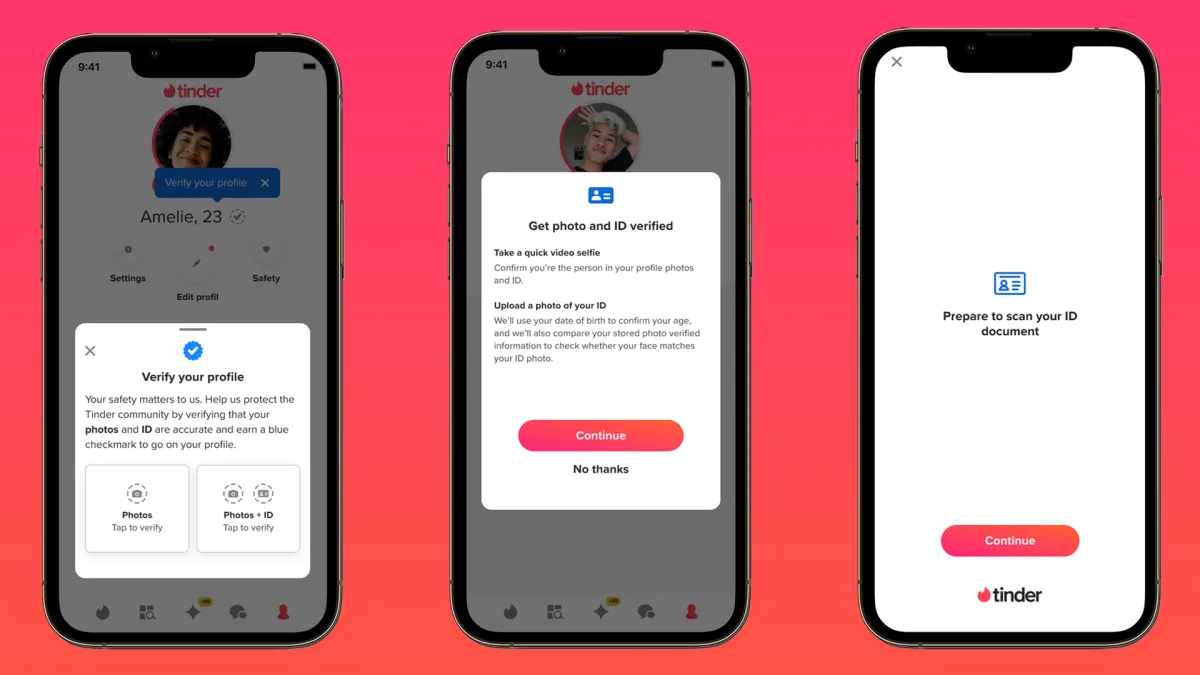
Know Your Dating (KYD): Identity Verification for Dating Apps
Key takeaways
Romance scams and identity theft on dating apps have grown exponentially, fueled by technologies like deepfakes.
Traditional methods such as linking social media accounts or email verification are insufficient to guarantee real identities on platforms like Tinder or Bumble.
Know Your Dating (KYD) is an evolution of the KYC process, specifically focused on verifying authentic profiles on online dating applications.
Implementing a robust KYD system protects platform reputation, complies with emerging regulations like the European DSA, and prevents romance scams.
In recent years, dating apps like Tinder, Hinge, Grindr, and Bumble have radically changed how we connect with others. Now, finding a partner, hooking up, or simply meeting new people is just a swipe away on our smartphones. However, this explosive growth comes with certain risks that can threaten our safety and privacy.
How can we know who's really on the other side of the screen? Are they actually who they claim to be? If you've used any of these online dating apps and asked yourself these questions, you're not alone. Using these platforms can involve hidden dangers: we're talking about identity theft and romance scams, which are becoming increasingly common.
The solution? Dating apps need to implement Know Your Dating (KYD) as a mandatory standard across all these sites. And if you work for one of these online dating platforms, stick around because we'll share the keys to ensuring genuine, authentic relationships are formed within your platform.
The Real Risks of Dating Apps Today
Romance fraud isn't new. However, with the explosion of digital platforms, cases of identity theft and romance scams (catfishing) have skyrocketed. According to recent INTERPOL studies, online romance scams are among the most widespread internet frauds (PDF report), particularly in regions like Asia and Africa. In major American cities, thousands of complaints related to dating platforms are filed monthly.
Netflix's famous documentary The Tinder Swindler was just the tip of the iceberg. Every day, we learn about new scam cases (the New York Post recently interviewed a victim). Thousands of people worldwide are affected by these frauds, and perpetrating them doesn't require advanced technical knowledge: most platforms lack robust identification systems.
Given this reality, protection against identity theft on apps is no longer optional—it's essential.
No, Brad Pitt and Tom Cruise Don't Need Money for Their Next Movie
Another common scam involves contacting people through dating platforms while impersonating celebrities like Tom Cruise or Brad Pitt. The goal is to deceive victims and request money.
In some cases, victims even go into debt to meet the supposed needs of these fake celebrities, who typically request funds for their next film or personal project. The story of someone impersonating a hospitalized Brad Pitt made headlines worldwide.
Much of this is enabled by technological advances like deepfakes, which allow people to impersonate others to achieve their goals. Most online dating platforms are currently unable to effectively filter out these sophisticated deceptions.
How Do Dating Platforms Currently Verify User Identity?
Online dating apps are aware of the reputational damage these scams cause them. That's why they're increasingly looking to enhance security in their registration processes, though this wasn't always the case. For example, platforms like Tinder or Bumble initially required users to provide only an email and phone number to start swiping.
However, this verification method was far from robust. Users could simply use a new email or phone number they hadn't previously used on the platform to start fresh. Even if they'd been banned from the app, they could re-enter with new credentials as if nothing had happened.

You can even find certain services online that will create a new Tinder or Bumble account for you for just a few dollars ($17.95), completely invalidating this onboarding process.
Linking with Social Media: Another Inefficient Method
Another inefficient method used by most dating apps for a long time was linking other social media accounts, such as Facebook, Instagram, or Twitter, with the app account to verify user identity.
However, the problem with this validation method remains at its core: no one can guarantee the authenticity of that profile. Anyone can create an account with someone else's photos (or AI-generated images) and create a profile on any social platform. Therefore, this method neither guarantees authenticity nor proves that the person signing up is actually who they claim to be.
Tinder and Bumble's New User Verification Methods
Now the major players in the dating app industry are looking to improve their processes to ensure platform security, in some cases including biometric checks to combat fraud.
Tinder uses a two-step verification process based on ID verification and facial biometrics. The user uploads a photo of their documentation, which is compared with a selfie video to help ensure the person's authenticity.
Bumble, on the other hand, asks users to pose in different ways and send these photos to the platform, which manually validates them. If they pass these checks, they appear as verified users within the platform.

From KYC to KYD: The Identity Verification Revolution for Online Dating
You may have heard about KYC (Know Your Customer), a common process among financial institutions and fintechs, among other obligated entities, to verify their customers' identity. Could this identity validation process be extrapolated to other sectors, such as online dating platforms? Absolutely—this is how the concept of Know Your Dating (KYD) was born, a philosophy dating apps should maintain as their standard.
What's the difference? While traditional KYC focuses primarily on guaranteeing people's identity as a preliminary step in preventing financial crimes, KYD focuses on validating profiles on dating apps. Its goal is to ensure that the person you're interacting with on an online application is really who they claim to be, through identity authentication that truly protects your safety.
If banks and fintechs must protect their users with strict verifications, why should sensitive platforms like Tinder or Bumble be any less careful?
How Automatic Digital KYD Verification Works in Dating Apps
Until now, most applications opted for basic methods, such as manually validated profile photos. This is clearly an insufficient authentication method, which is being replaced by more advanced and secure methods, powered by artificial intelligence:
- Automated document verification
- Biometric facial recognition
- Liveness detection methods to ensure the person is actually present during the onboarding process
That's why at Didit, we offer this specialized identity verification technology for dating apps. We offer the first and only free and unlimited plan on the market, which performs verification in less than 30 seconds. We support more than 220 countries and territories, validating thousands of different types of identity documents.
All this with 99.9% accuracy thanks to our proprietary developments based on machine learning.
Why KYD Should Be Urgent and Essential for All Dating Apps
The lack of a robust identity verification system for online dating can lead to serious economic, legal, and reputational consequences. In fact, it's a real concern for many regulators, who see these platforms as an optimal breeding ground for scammers to act without shame. In the European Union, the Digital Services Act (DSA) is beginning to demand transparency, security, and effective fraud prevention from various applications. For example, Tinder offers tools to report fraudulent cases.
Thanks to a free and unlimited solution like ours, there's no excuse for dating applications not to provide safe environments for their users. The people on the other side of the screen deserve real protection against romance scams, deepfakes, and other forms of fraud that emotionally and financially harm millions of people each year.
Conclusion: Don't Wait to Match with the Next Scandal
From Didit, we want to send a clear message to all platforms like Tinder, Hinge, Grindr, or Bumble: don't wait for a high-profile fraud to hit your reputation before you react. Prevention and user safety are always the best strategy.
The technology is already here. Our free and unlimited KYD is the solution to ensure that all dates taking place are safe and based on robustly verified profiles.
It's time to take your users' safety seriously.
We're ready, are you? Is it a match?
Know Your Dating (KYD): Identity Verification for Dating Apps



